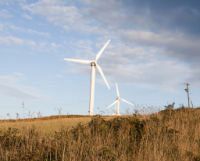

A consultation launched on 11 May 2023 sets out the government's proposals to develop local partnerships for onshore wind where local communities agree to host developments, which could lead to benefits.
In 2015, the government made changes to strengthen local decision-making in relation to onshore wind development, through changes in onshore wind planning policy so that projects have to be located in an area suitable for onshore wind in the local authority's development plan, and the communities have to back each individual proposal. Alongside this, the government changed the law so that all decisions on onshore wind turbines of any size are determined by the local planning authority, rather than national bodies.
This resulted in an overly rigid system that is preventing local authorities from being able to respond to the views of their local communities when they wish to host onshore infrastructure. Those restrictions essentially halted the development of onshore wind in England.
Now, the government is committed to changing this stance through partnerships with local communities that support developments in their local area. Under the new proposals, the government is considering updating the existing Community Benefits Protocol for community benefits from onshore wind to reflect innovative and emerging schemes, like energy bill discounts.
Additionally, the Department for Energy Security and Net Zero (DESNZ) is proposing to embed the best practice principles of engagement into the planning guidance for local authorities and developers, which aims to ensure that the views of the communities are taken into account. At the moment this is centrally controlled by the government.
The Secretary for Energy security and net zero, Graham Stuart said: "Onshore wind is a vital part of our plans to deliver cheaper, cleaner, and more secure homegrown energy.
"It is right that new developments have the support of host communities, and that local people benefit directly from it, such as through either a discount on their energy bills or other significant community benefits.
"Our proposals will ensure developers and local residents can work together more efficiently to maximise community benefits for supportive communities while delivering the clean and secure energy the country needs."
For more information see, the: